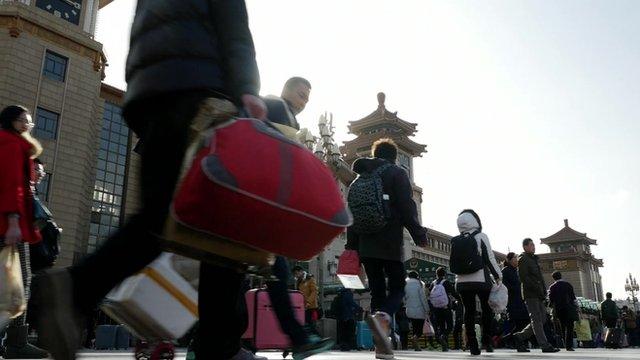Chinese New Year: Why many will travel home for good
- Published
Xu Xifei and his wife make the long journey home during Chinese New Year
For many millions it is an unavoidable ritual, something to be tolerated with as much patience as one can muster because the reward at the end is worth it.
Every Chinese New Year as people board trains, planes, buses, cars and mopeds to head home for the warmth of the family reunion, they arrive battered and beleaguered, each with their own tale of travelling woe.
The 20-hour journeys with standing room only. The pickpockets. And just the sheer overwhelming numbers of people, thronging every platform, forming every queue.
So when the whole country seemingly becomes one large crowd it might seem unlikely that China would be shocked by pictures of a large crowd.
But then the Guangzhou Railway Station crowd was a particularly special one.
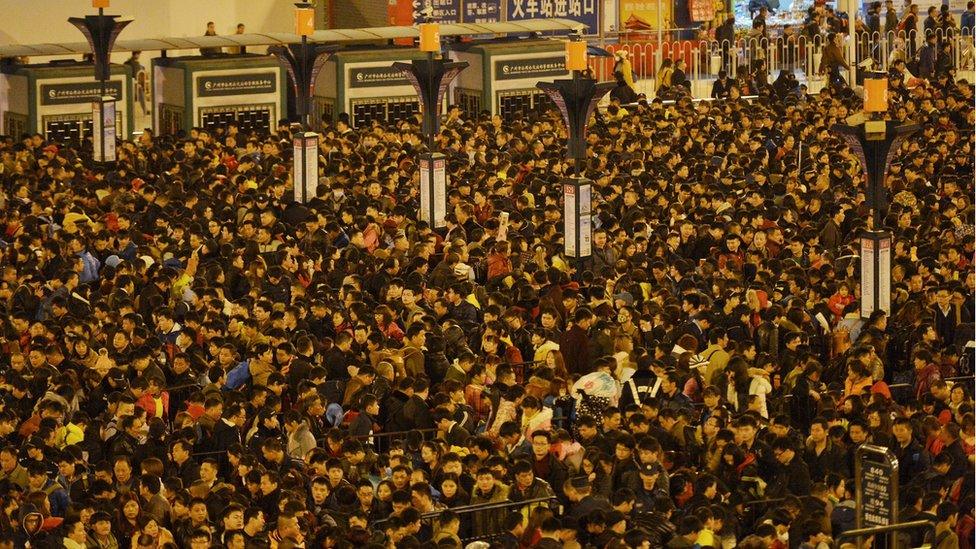
Crowd outside Guangzhou station swelled to nearly 100,000, police said
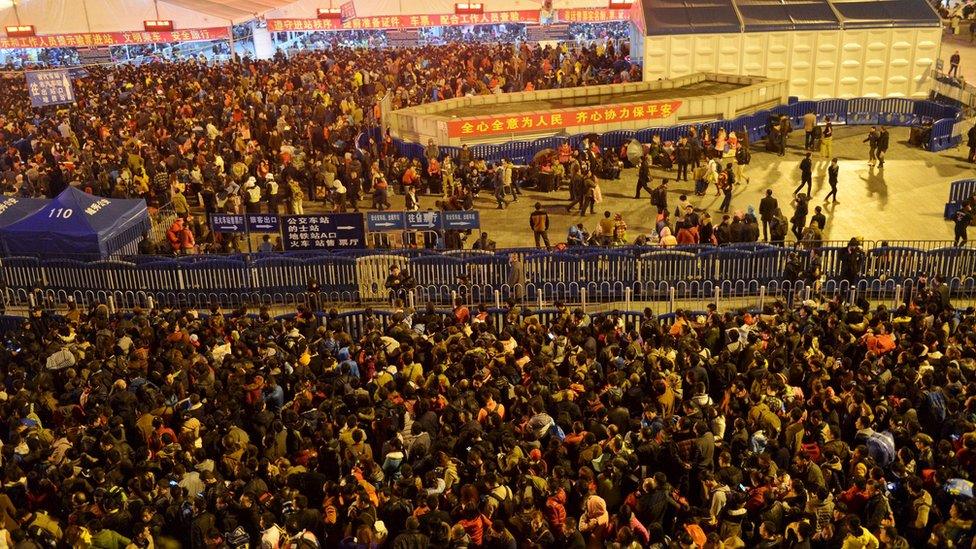
Disruption was caused by bad weather
The snarl-up began on Monday with bad weather further north causing the cancellation or delay to some services out of Guangzhou.
As word spread of the increasingly large throng of waiting passengers, even more people began turning up extra early for their trains and the problem only intensified.
'Dumplings in a bowl'
At the peak, 100,000 people were crammed shoulder to shoulder on the giant square in front of the station, spilling out into side roads.
"We are like dumplings in a bowl," one man told me. He faced a three-hour wait to clear security and then, once finally aboard his train, an eight-hour journey home.
"I am very tired," another young woman said "but when I think about my mother and father at home I feel warm and I want to be with them sooner."
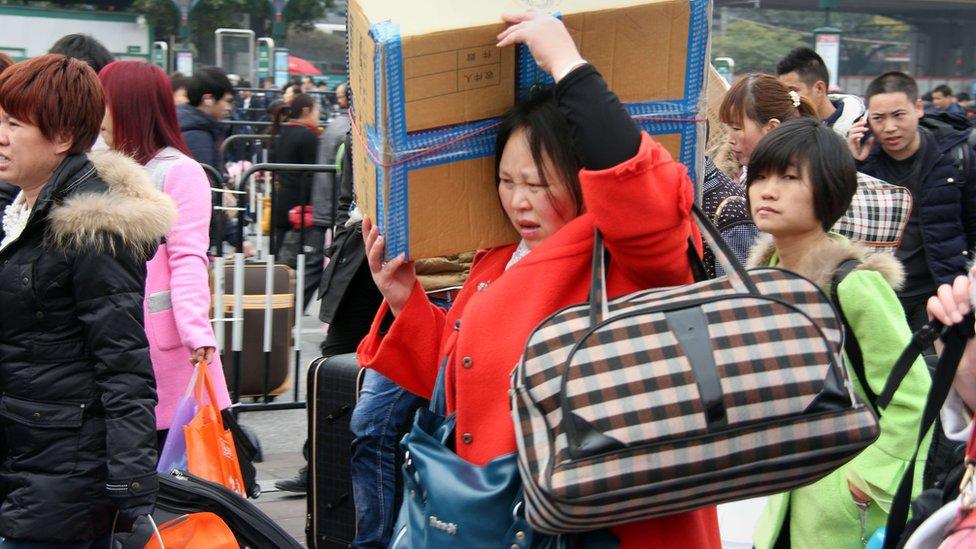
The Chinese New Year is believed to be the largest yearly movement of people in the world
Despite the extraordinary scenes of congestion, this was as much a picture of railway efficiency and resilience, as chaos and delay.
Despite more than 1,000 extra police officers being drafted in for the crowds, there was little trouble for them to deal with.
I saw one passenger slugging a uniformed police officer with his bag, enraged that he had been stopped from climbing over a metal barrier, but for the most part, there was that old, resigned acceptance that all this is part of the fabric of Chinese New Year.
And, by Wednesday, the authorities had begun to get to grips with the problems on the network itself, bringing in extra trains, or diverting passengers to other train stations, and all the while thousands upon thousands of new passengers continue to arrive, shepherded through the concourse in long, snaking lines, through security and onto trains which, for the most part, were kept running to time.
Going and not coming back
This year, for many of the migrant workers who make up a large proportion of the crowds, there is another, far deeper concern than the issue of just another hectic trip home.
China's industrial landscape is changing. The factories, once the centrepiece of the economy, are relocating to countries where wages are lower and, in addition, many migrants now see increasing opportunities in the smaller towns and cities closer to their homes.
So, many migrants are packing their bags for the last time and deciding that, after travelling home this year, that is where they will stay.
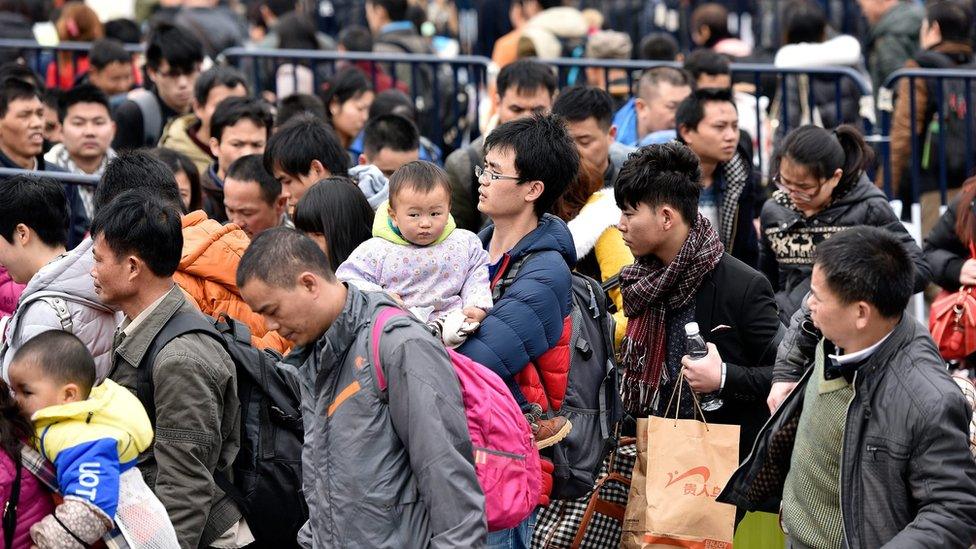
An estimated 2.91 billion trips are expected to be taken over the holiday's 40-day travel season
Factory bosses report that, at the same time as they face falling demand for their products, they find it increasingly hard to man their production lines, even as wage costs rise ever higher, eroding their competitive advantage even further.
This major economic shift has been marked by the first fall in China's migrant population in three decades, down by almost 6 million in 2015.
Xu Xifei and Wu Jianying have been migrant workers for more than 10 years, spending most of the year in Guangdong Province while their children stay home in the village.
They say the shoe factory where they work is losing out to overseas competition and, with living costs rising fast, it is becoming increasingly hard to make enough money to survive.
"Did not President Xi Jinping say that if you work hard and stick to your dreams you will get your reward?" Mr Xu asks me.
"Well we did work hard, we did have a dream, but we have nothing to show for it."
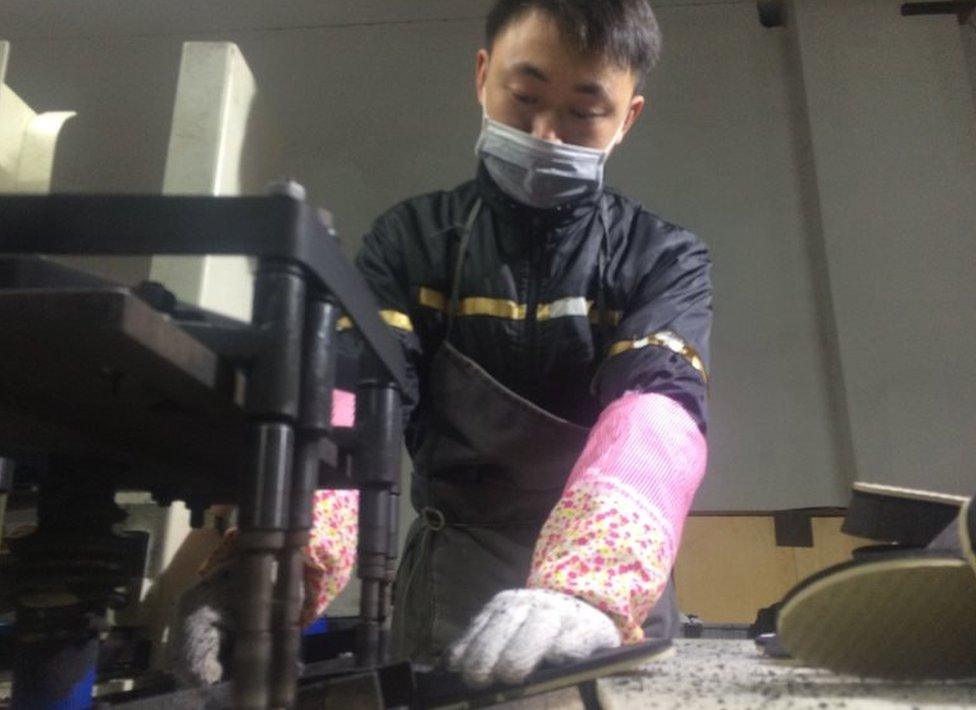
Xu Xifei, 36, has been working at a shoe factory in Dongguan city for more than 10 years
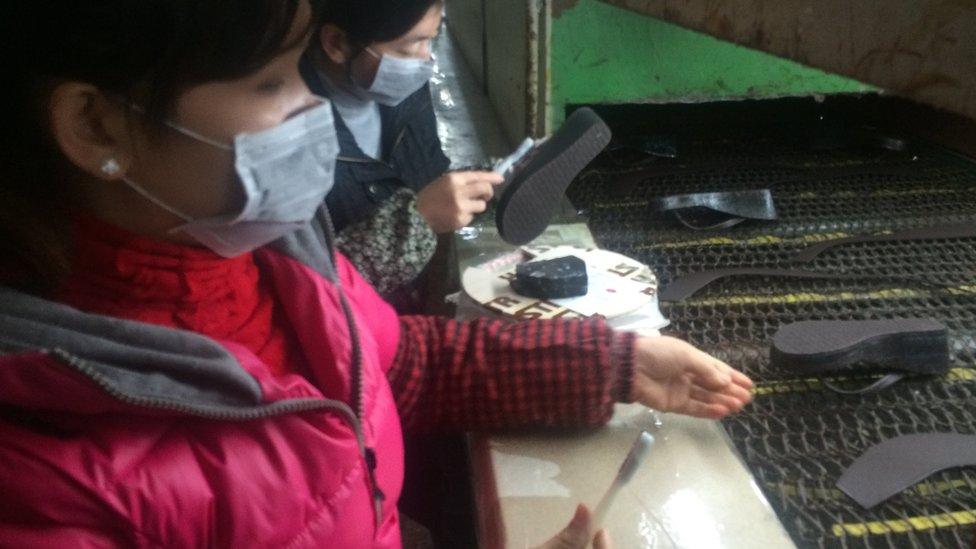
The couple says it has become increasingly difficult to make ends meet
The backlog of passengers at Guangzhou has now mostly been cleared after extra trains were laid on.
So China's crowds of stoical migrants are on the move again, but into an increasingly uncertain future.
- Published2 February 2016
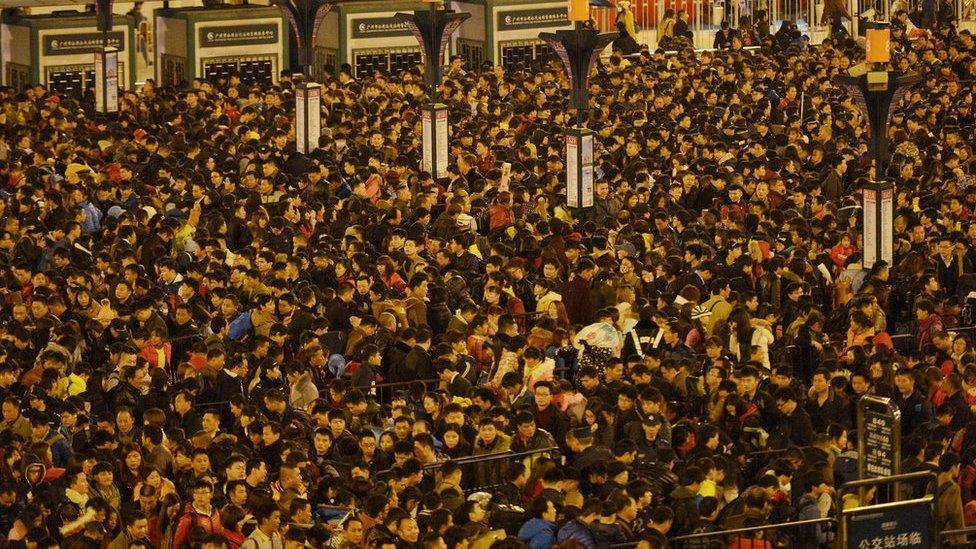
- Published1 February 2016
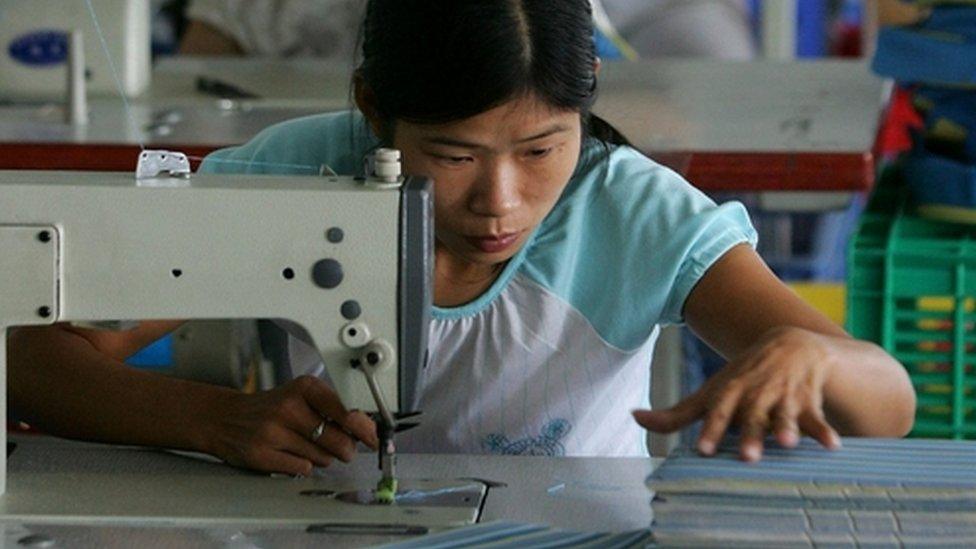
- Published19 January 2016
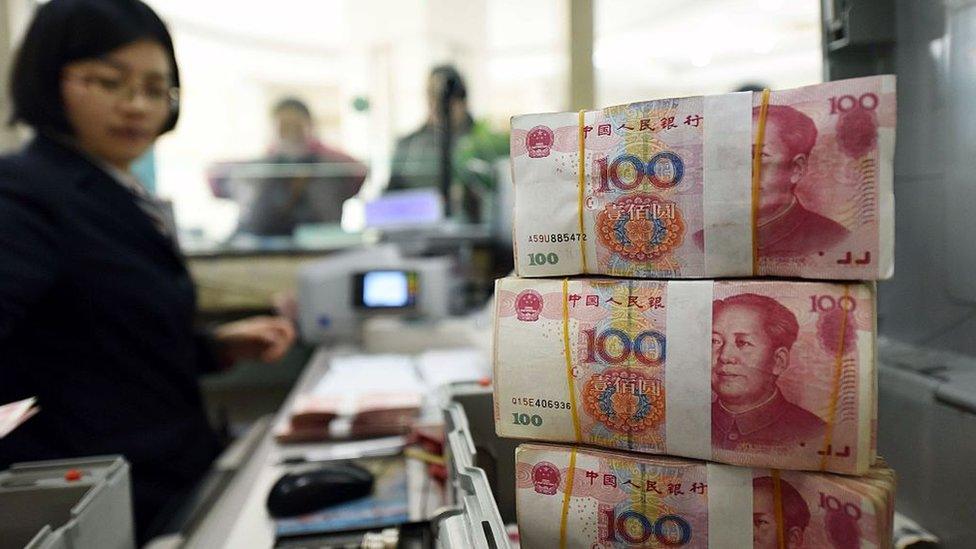
- Published17 February 2015
